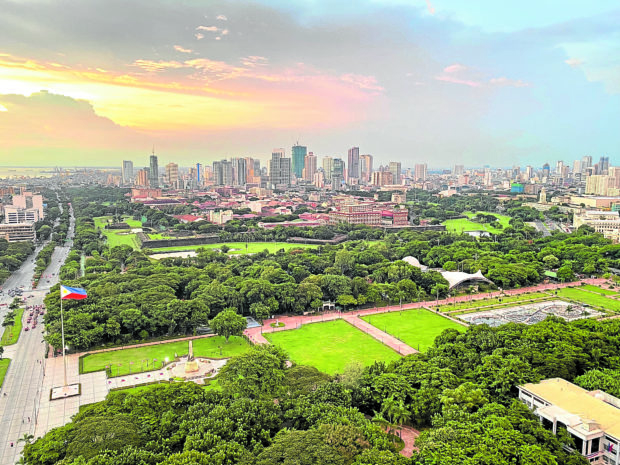Manila slipped to 21st place among 24 cities in attracting the lucrative high net-worth, luxury clientele due to perceived corruption in the country and worries about the return of the Marcoses to power, a report of Swiss wealth manager Julius Baer showed.
Julius Baer’s Global Wealth and Lifestyle Report 2022 showed that the ranking of the Philippines’ capital slid from 16th place last year, which actually meant that luxury items in the city became less costly in 2021 than in 2020.
Manila was “the only city in our index to have become cheaper on average over the last year,” Julius Baer said.
Despite this, Manila’s ranking slid, and Julius Baer attributed this to the following: “Problems ranging from corruption to extreme weather events mean its progress has been slower than its neighbors, and recent political changes raise the spectre of the economic troubles of the 1980s.”While Julius Baer did not specify, it was referring to the debt crisis during the waning years of dictator Ferdinand Marcos, whose son Ferdinand Marcos Jr. will be the country’s president in July.
Referring to the Philippines, “the most affordable residential property in the region is not enough to counter these factors holding the country back as others race forward,” Julius Baer said.
Also, Julius Baer’s lifestyle index, or basket of 20 goods and services that represent discretionary purchases by high net-worth individuals globally, showed that men’s suits were most expensive in Manila, but hiring lawyers was the cheapest, despite lawyer fees rising 26 percent last year in the city.
Other luxury items that became more expensive last year were technology packages (up 37 percent), bicycles (up 25 percent), men’s suits (up 13 percent), and treadmills (up 6 percent).
Luxury goods whose prices declined in Manila last year were cars (down 18 percent), ladies’ shoes (down 22 percent), residential properties (down 5 percent), watches (down 3 percent), business class flights (down 26 percent), degustation dinners (down 28 percent), MBA degrees (down 20 percent) and health insurance (down 18 percent).
“The country’s GDP [gross domestic product] was impacted by the pandemic, but no more than most Asian countries, and is projected to rebound in 2022,” Julius Baer said.
The Philippines suffered from its worst post-war recession at the height of the most stringent COVID-19 lockdowns in 2020, but economic growth reverted to stronger-than-expected performances last year, and possibly this year as many think tanks expect the Philippine economy to grow the fastest in the region.
Julius Baer said Manila, Jakarta and Mumbai, were “very cheap across the board, but they are peripherally located outliers in a region that is generally expensive.”
In Asia-Pacific, the most expensive cities for Julius Baer were Shanghai, Taipei, Hong Kong, Singapore, and Tokyo, followed by Sydney, Bangkok, Jakarta, Manila, and Mumbai.
Worldwide, the cities deemed most expensive by Julius Baer were Shanghai, London, Taipei, Hong Kong, as well as Singapore.


